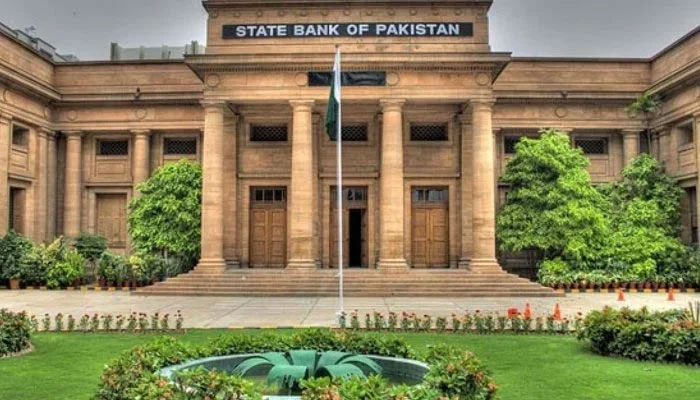Analysis: State of emergency?
There's been a bloodbath at the Pakistan Stock Exchange where the loss in capitalisation has amounted to Rs900 billion or a colossal $4.5 billion
On the economic front, as of May 6, net liquid foreign exchange reserves with the State Bank of Pakistan (SBP) stand at $10.3 billion less $4 billion worth of gold and SBP hardly has enough dollars to cover just one month of imports.
There's been a bloodbath at the Pakistan Stock Exchange where the loss in capitalisation has amounted to Rs900 billion or a colossal $4.5 billion. Plus, the rupee has lost Rs17 against the dollar in a month.
The PTI is spreading a 'civil war' narrative, bent upon delegitimising all state institutions and undermining the administrative capacity of the state. On the political front, there's chaos, disorder, confusion and commotion. Imagine a serious political chaos amidst an even more serious economic meltdown. A catastrophe in the making? A catastrophe of our own making.
Three things are yet to happen: the price of diesel is yet to reach Rs250 a litre; SBP’s policy rate is yet to rise to 15 percent; and the rupee is yet to fall another Rs10 against the dollar. Withdrawing the subsidy on diesel -- and raising the price of diesel to Rs250 a litre is an extremely difficult political decision. My feeling is that Prime Minister Shehbaz Sharif has the capacity to take difficult decisions but the prime minister is not ready to take difficult decisions without the full support of other stakeholders, including the establishment.
To be certain, elections do not have any answer to our momentous economic dilemmas. To begin with, elections mean that the PMLN-led government is not prepared to take difficult decisions and if the PMLN comes back a winner, the party would still have to take the same difficult decisions.
Secondly, under the law, an interim government has to precede an election but the IMF, as a matter of principle, does not deal with an interim government (unless there’s complete political consensus behind that interim government). If the IMF is not willing to deal with an interim government, then a default becomes a real possibility even before an election.
Thirdly, the Election Commission of Pakistan (ECP) is not ready for election. Plus, Imran Khan will not accept election results under the current ECP.
Back in 2018, Imran Khan’s strength rested on four pillars: he was backed by the establishment, powered by deep-pocketed ATMs, untested and loved by the media. In 2022, he stands fully tested plus he has lost his deep-pocketed ATMs while both the media and the establishment have gone 'neutral'. To be certain, he still has no team to manage the economy.
Red alert: Pakistan is going through an internal political realignment plus an external geopolitical realignment. To be sure, PTI's narrative of a 'civil war' and the narrative of a 'better economy' cannot coexist; one of the two has to be buried several feet under the ground. Does the government need to declare a state of emergency? A state of emergency is a "situation in which a government is empowered to be able to put through policies that it would normally not be permitted to do, for the safety and protection of its citizens”.
-
 South Korea: Two Killed As Military Helicopter Crashes During Training
South Korea: Two Killed As Military Helicopter Crashes During Training -
 Elon Musk Unveils SpaceX’s Moon-first Strategy With ‘self Growing Lunar City’
Elon Musk Unveils SpaceX’s Moon-first Strategy With ‘self Growing Lunar City’ -
 Donald Trump Slams Bad Bunny's Super Bowl Performance: 'Absolutely Terrible'
Donald Trump Slams Bad Bunny's Super Bowl Performance: 'Absolutely Terrible' -
 Jake Paul Criticizes Bad Bunny's Super Bowl LX Halftime Show: 'Fake American'
Jake Paul Criticizes Bad Bunny's Super Bowl LX Halftime Show: 'Fake American' -
 Prince William Wants Uncle Andrew In Front Of Police: What To Expect Of Future King
Prince William Wants Uncle Andrew In Front Of Police: What To Expect Of Future King -
 Antioxidants Found To Be Protective Agents Against Cognitive Decline
Antioxidants Found To Be Protective Agents Against Cognitive Decline -
 Hong Kong Court Sentences Media Tycoon Jimmy Lai To 20-years: Full List Of Charges Explained
Hong Kong Court Sentences Media Tycoon Jimmy Lai To 20-years: Full List Of Charges Explained -
 Coffee Reduces Cancer Risk, Research Suggests
Coffee Reduces Cancer Risk, Research Suggests -
 Katie Price Defends Marriage To Lee Andrews After Receiving Multiple Warnings
Katie Price Defends Marriage To Lee Andrews After Receiving Multiple Warnings -
 Seahawks Super Bowl Victory Parade 2026: Schedule, Route & Seattle Celebration Plans
Seahawks Super Bowl Victory Parade 2026: Schedule, Route & Seattle Celebration Plans -
 Keto Diet Emerges As Key To Alzheimer's Cure
Keto Diet Emerges As Key To Alzheimer's Cure -
 Chris Brown Reacts To Bad Bunny's Super Bowl LX Halftime Performance
Chris Brown Reacts To Bad Bunny's Super Bowl LX Halftime Performance -
 Trump Passes Verdict On Bad Bunny’s Super Bowl Halftime Show
Trump Passes Verdict On Bad Bunny’s Super Bowl Halftime Show -
 Super Bowl 2026 Live: Seahawks Defeat Patriots 29-13 To Win Super Bowl LX
Super Bowl 2026 Live: Seahawks Defeat Patriots 29-13 To Win Super Bowl LX -
 Kim Kardashian And Lewis Hamilton Make First Public Appearance As A Couple At Super Bowl 2026
Kim Kardashian And Lewis Hamilton Make First Public Appearance As A Couple At Super Bowl 2026 -
 Romeo And Cruz Beckham Subtly Roast Brooklyn With New Family Tattoos
Romeo And Cruz Beckham Subtly Roast Brooklyn With New Family Tattoos




